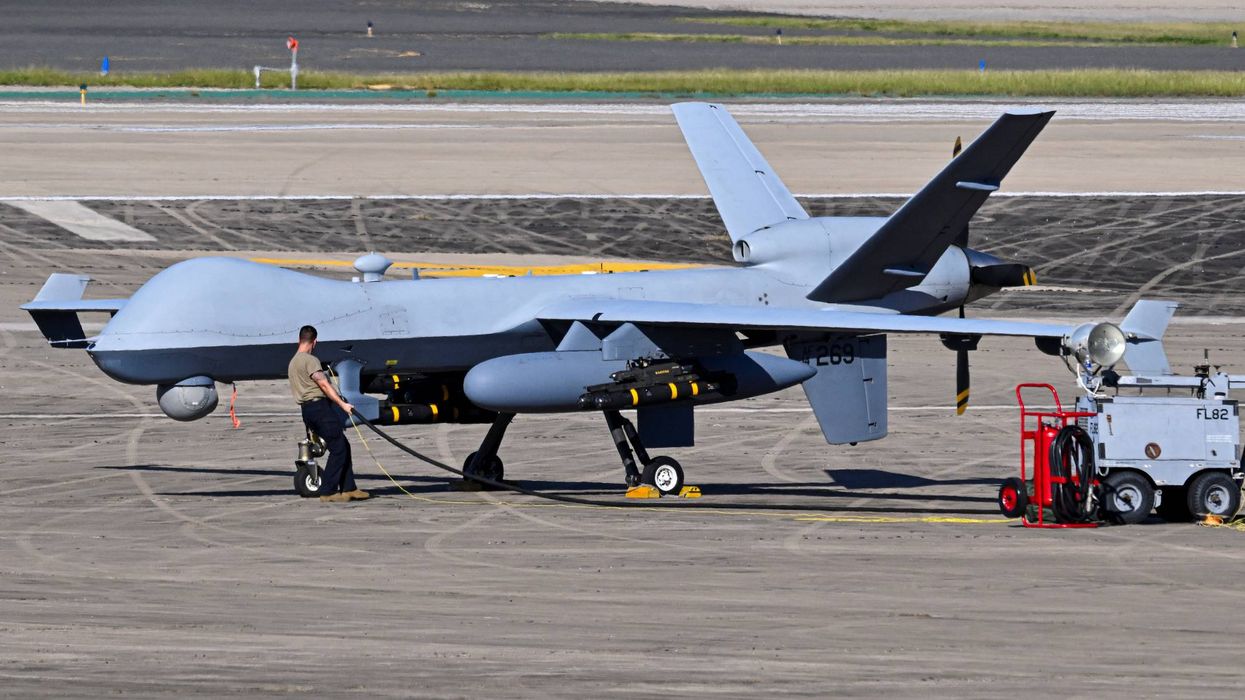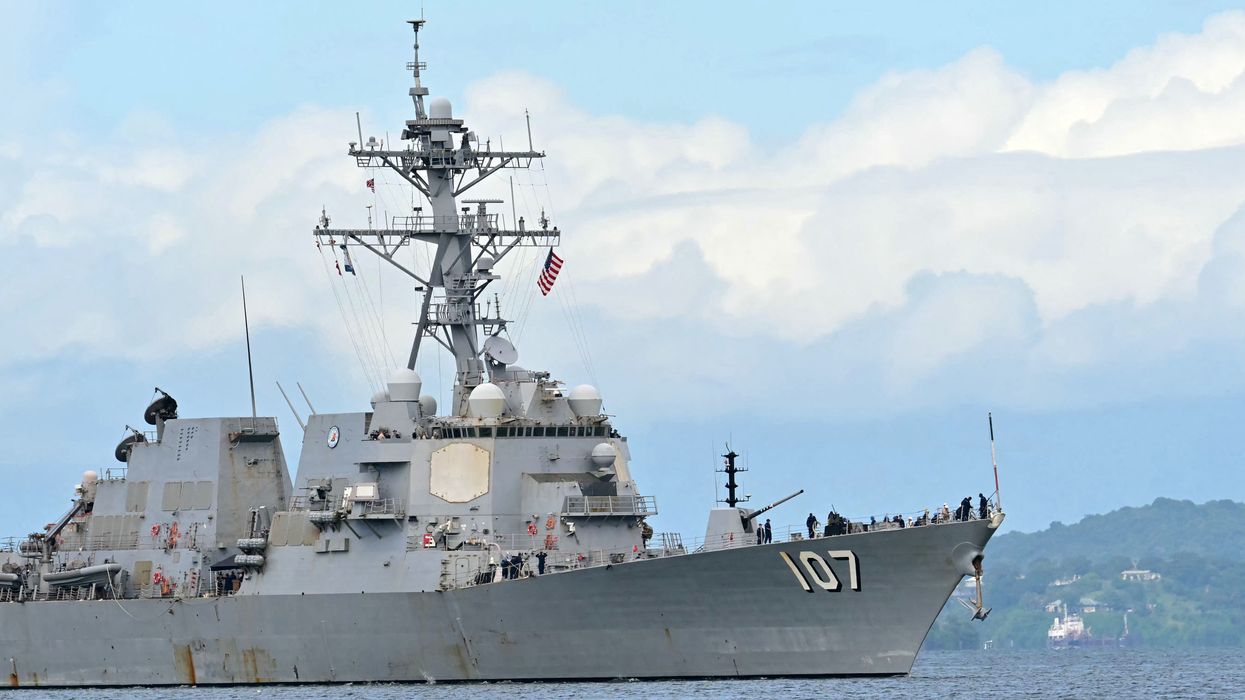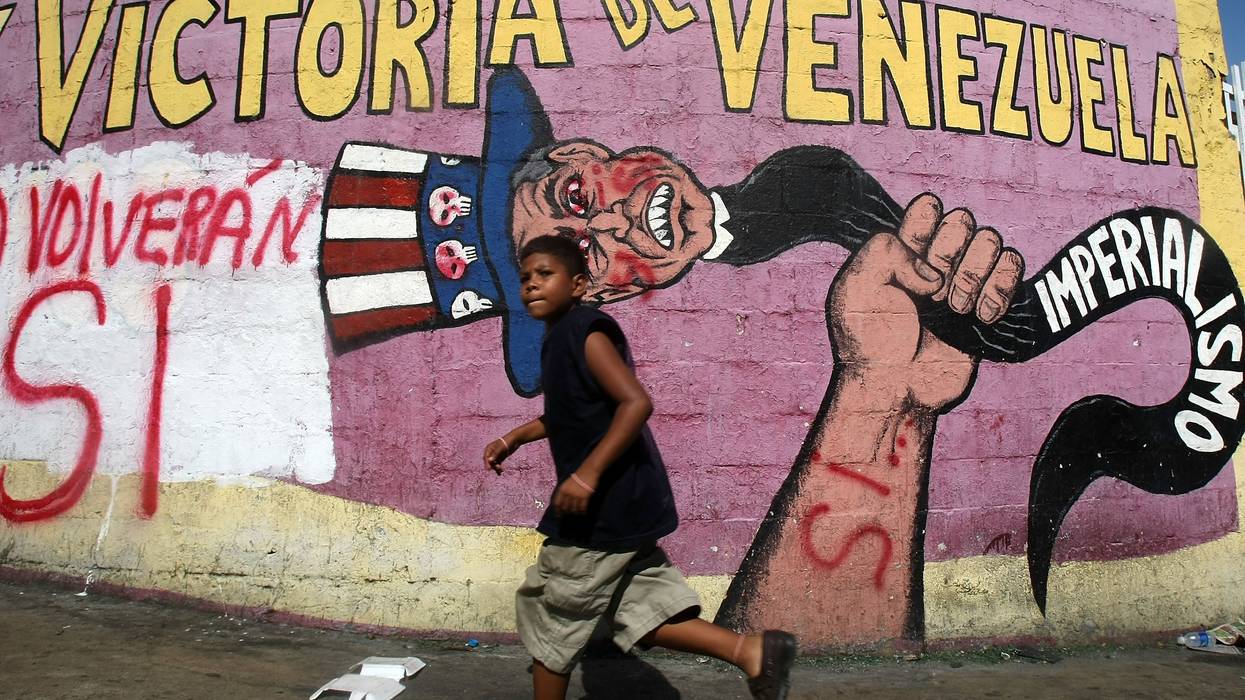"These reports follow on the administration’s unlawful and unauthorized use of military force against vessels and their crews in the Caribbean—which constitute extrajudicial killings," added Duss, a former foreign policy adviser to Sen. Bernie Sanders (I-Vt.).
Trump said Wednesday that he had authorized the CIA to conduct covert operations inside the South American nation "for two reasons"—at least the first of which is a lie.
“Number one, they have emptied their prisons into the United States of America,” he said. “And the other thing, the drugs, we have a lot of drugs coming in from Venezuela, and a lot of the Venezuelan drugs come in through the sea.”
There is no credible evidence that the Venezuelan government has systematically or deliberately released prisoners and sent them to the United States. The claim—which has been popularized by Trump and some Republicans—has been repeatedly debunked by experts and US officials.
As for drugs, while Venezuela is a transit point for cocaine—mostly produced in neighboring Colombia—the amount of narcotics entering the United States via the country is relatively insignificant compared with routes via Mexico, Central America, and the Pacific coast.
Approximately 90% of US-bound cocaine enters the country via Mexico, according to the US Drug Enforcement Administration and other government agencies. Venezuela is also not a significant source of fentanyl, which is the leading cause of overdoses in the US and is also trafficked primarily through Mexico.
“Using covert or military measures to destabilize or overthrow regimes reminds us of some of the most notorious episodes in American foreign policy, which undermined the human rights and sovereignty of countries throughout Latin America and the Caribbean," said Duss.
According to John Coatsworth, a historian specializing in Latin America, the US has launched at least 41 interventions that successfully overthrew governments in the hemisphere since 1898. The number of US military interventions in the region is much higher.
The US has been meddling in Venezuelan affairs since the 19th century, going back to an 1895 boundary dispute between Venezuela and Britain and possibly earlier. Since then, Washington has helped install and prop up brutal dictators and assisted in the subversion of democratic movements, including by training Venezuelan forces in torture and repression at the notorious US Army School of the Americas.
This century, successive US administrations beginning with George W. Bush have worked to thwart the Bolivarian Revolution launched by former President Hugo Chávez and continued under Maduro. Under Trump, the US has deployed a small armada of warships and thousands of troops off the coast of Venezuela, a rattling of proverbial sabers familiar to students of US imperialism in Latin America.
Tens of thousands of Venezuelans have also died as a result of US economic sanctions on Venezuela, according to research from the Center for Economic and Policy Research.
“The CIA has been sent to Venezuela for regime change," Maduro said Thursday in Caracas. "Since its creation, no US government has so openly ordered this agency to kill, overthrow, or destroy other countries."
“If Venezuela did not possess oil, gas, gold, fertile land, and water, the imperialists wouldn’t even look at our country," he added.
Duss noted that the United States is "still dealing with many of the harmful consequences of these disastrous interventions in today’s challenges with migration and the drug trade."
"Such interventions rarely lead to democratic or peaceful outcomes," he stressed. "Instead, they exacerbate internal divisions, reinforce authoritarianism, and destabilize societies for generations."
As Tim Weiner, the Pulitzer Prize-winning author of multiple histories of the CIA, said in a Friday interview with CNN senior politics writer Zachary Wolf, former Cuban leader Fidel Castro "survived covert action under presidents from [Dwight] Eisenhower onward and outlived them all."
Weiner said that even operations considered successes created tremendous problems.
“The successes, for example, in Guatemala, ushered in dictatorships and led to the deaths of hundreds of thousands of people,” he said, referring to the 1954 CIA overthrow of reformist Guatemalan President Jacobo Árbenz—codenamed PBSUCCESS—which led to decades of bloody repression and a US-backed genocide against Indigenous Mayan peoples.
Writing for Responsible Statecraft on Thursday, Joseph Addington, associate editor and Latin America columnist at The American Conservative, asserted that any US invasion of Venezuela "comes with a number of costs and risks American policymakers should bear in mind and carefully weigh against the potential benefits of intervention."
"There is no free lunch in geopolitics," he argued.
Addington cited an example of the US ousting a drug trafficking leader, who was an erstwhile ally and CIA asset:
The most obvious costs are those of the initial invasion. The American invasion of Panama in 1989, to overthrow the government of Gen. Manuel Noriega, was carried out by a force of some 27,000 US troops, 23 of which were killed and hundreds more wounded. Venezuela is vastly larger than Panama, and while its military is very poorly equipped, it likewise dwarfs the forces that were available to Noriega. The Center for Strategic and International Studies estimates an invasion of Venezuela would require nearly 50,000 troops, some of which will not return home. Any American government should be extremely conscientious about the causes on which it spends the lives of American soldiers.
"The real risks of such an operation, however, come after the invasion," Addington said. "Toppling Maduro’s government is one thing; there is no real chance that the impoverished and corrupt Venezuelan armed forces can put up a serious fight against the American military. But occupying and rebuilding the country is another, as the US learned to its chagrin in the Middle East."
Duss noted that “Trump ran as an anti-war candidate and casts himself as a Nobel Prize-worthy peacemaker," and that "a majority of Americans oppose US military involvement in Venezuela."
"Lawmakers must make clear that Trump does not have the American people’s support or Congress’ authorization for the use of force against Venezuela or anywhere else in the region," he said.
On Friday, a bipartisan group of US senators—Tim Kaine (D-Va.), Rand Paul (R-Ky.), and Adam Schiff (D-Calif.)—introduced a war powers resolution that would bar US military action within or against Venezuela.
“I’m extremely troubled that the Trump administration is considering launching illegal military strikes inside Venezuela without a specific authorization by Congress," Kaine said in a statement. "Americans don’t want to send their sons and daughters into more wars—especially wars that carry a serious risk of significant destabilization and massive new waves of migration in our hemisphere."
"If my colleagues disagree and think a war with Venezuela is a good idea," he added, "they need to meet their constitutional obligations by making their case to the American people and passing an authorization for use of military force."
It's the second time Kaine and Schiff have tried to introduce such a measure. Earlier this month, Democratic Sen. John Fetterman joined his GOP colleagues in voting down a Venezuela war powers resolution. Paul joined Democrats and independent Sens. Bernie Sanders (Vt.) and Angus King (Maine) in voting for the legislation.


